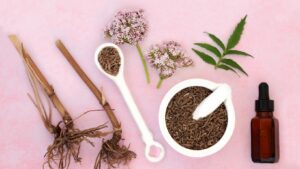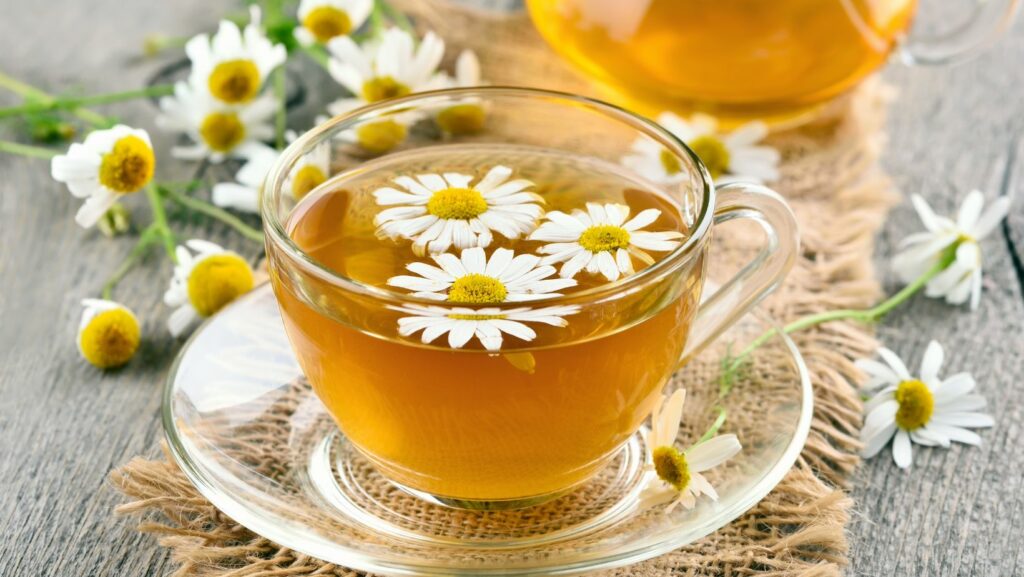In today’s fast-paced world, parents often seek natural ways to help their energetic children find calmness. While hyperactivity is a common trait among kids, it can sometimes be challenging to manage. Many parents are turning to herbal remedies as a gentle, effective approach to soothe their little ones without the side effects of conventional medications.
Herbal remedies have been used for centuries to promote relaxation and balance. From chamomile tea to lavender essential oils, these natural solutions offer a holistic way to support a child’s emotional well-being. By incorporating these remedies into daily routines, parents can foster a peaceful environment that encourages focus and tranquility.
Exploring herbal options empowers parents to make informed choices about their child’s health. With the right knowledge and guidance, these gentle remedies can become a valuable part of a family’s wellness toolkit, providing comfort and calm to even the most spirited children.
Understanding Hyperactivity In Children
 Hyperactivity in children involves constant movement, impulsiveness, and difficulty focusing. Children may frequently fidget, run, or climb when it’s not suitable. While energetic behavior is typical, hyperactivity can interfere with daily life if persistent and intense. It’s often associated with conditions like Attention Deficit Hyperactivity Disorder (ADHD), impacting about 8.4% of children according to the Centers for Disease Control and Prevention (CDC).
Hyperactivity in children involves constant movement, impulsiveness, and difficulty focusing. Children may frequently fidget, run, or climb when it’s not suitable. While energetic behavior is typical, hyperactivity can interfere with daily life if persistent and intense. It’s often associated with conditions like Attention Deficit Hyperactivity Disorder (ADHD), impacting about 8.4% of children according to the Centers for Disease Control and Prevention (CDC).
Identifying hyperactivity involves recognizing patterns of behavior that are excessive compared to peers. Teachers, parents, and caregivers might notice difficulty in remaining seated or excessive talking in various settings. Behavioral assessments by healthcare professionals can further clarify the distinction between normal energy levels and hyperactivity.
Herbal Natural Remedies to Calm a Hyper Child
Popular herbal remedies offer gentle options for calming a hyper child. Key examples include chamomile, valerian root, lavender, and lemon balm.
Chamomile
Chamomile is renowned for its calming effects, making it a popular choice for soothing hyperactivity in children. Historically used in teas, this herb helps induce relaxation and reduce anxiety. The compounds in chamomile flowers, such as apigenin, bind to brain receptors and promote tranquility. Parents often incorporate chamomile into bedtime routines to aid sleep and relaxation.
Valerian Root
 Valerian root is valued for its sedative properties, which can help improve focus and reduce restlessness. This herb supports the balance of neurotransmitters that regulate mood and attention. Valerian is typically used in tea or capsule form and is known to encourage a sense of calmness and enhance sleep quality. Parents, under professional guidance, find it useful in managing symptoms of hyperactivity.
Valerian root is valued for its sedative properties, which can help improve focus and reduce restlessness. This herb supports the balance of neurotransmitters that regulate mood and attention. Valerian is typically used in tea or capsule form and is known to encourage a sense of calmness and enhance sleep quality. Parents, under professional guidance, find it useful in managing symptoms of hyperactivity.
Lavender
Lavender is a versatile herb known for its soothing aroma and stress-relieving properties. Commonly used in aromatherapy, lavender oil can help create a calming environment for a hyper child. Its relaxing fragrance promotes nervous system calmness, aiding in reducing stress and improving sleep. Lavender-infused sprays or diffusers in a child’s room can be particularly effective.
Lemon Balm
Lemon balm, a member of the mint family, is another herbal remedy recognized for its calming effects. This herb helps alleviate symptoms of anxiety and stress, contributing to improved focus and calmness. Lemon balm is often prepared as a tea or used in extracts. It works by elevating mood and promoting relaxation, making it a helpful option for hyperactive children.
How To Use Herbal Remedies Safely
Parents seeking herbal remedies for hyperactive children must ensure proper usage to maximize benefits and minimize risks.
Dosage Guidelines
 Accurate dosing is essential when using herbal remedies to calm hyperactive children. A healthcare professional should determine the appropriate amount of each herb, based on the child’s age, weight, and overall health. Chamomile tea typically contains mild doses and is safe for most children. When using valerian root, caution is advised as higher doses may lead to drowsiness. For lavender and lemon balm, precise guidelines depend on delivery methods such as teas or essential oils.
Accurate dosing is essential when using herbal remedies to calm hyperactive children. A healthcare professional should determine the appropriate amount of each herb, based on the child’s age, weight, and overall health. Chamomile tea typically contains mild doses and is safe for most children. When using valerian root, caution is advised as higher doses may lead to drowsiness. For lavender and lemon balm, precise guidelines depend on delivery methods such as teas or essential oils.
Potential Side Effects
Though herbal remedies offer gentler options than pharmaceuticals, they still carry potential side effects. Chamomile may cause allergic reactions in children sensitive to ragweed. Valerian root might induce gastrointestinal upset if consumed in large quantities. Lavender oil, when ingested, could lead to headaches or skin irritation if used on sensitive skin. Lemon balm may cause nausea in some children.

